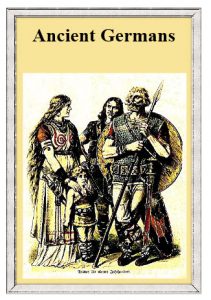ABOUT THE MIDDLE OF THE THIRD CENTURY there appeared near the lower Rhine a confederacy of German tribes known as Franks. They are believed to be the same which were known to the Romans in the time of the first Emperors, as Sigambri, Chainavi, Bructeri, Catti, &c. Of these the Sigambri, (a tribe, said by some writers to have descended from the Scythians), were the most powerful. All speculations upon the origin of the German tribes, their relation to other branches of the Arian race, and the routes by which they reached Europe, belong to the sciences of ethnology and antiquities.
Scholars are agreed that the languages of the Celtic, German and Slavonic tribes, with the ancient tongues of Persia, India, Greece and Italy, have enough in common to prove that they are but modifications or branches of one original language, spoken ages ago by the common ancestors of these people.•
The land was not a common possession, but the soil in part became the property of the individual freeman, and the citizens who were such only by virtue of their interest in the land, were distinguished by their proud and independent spirit. They disliked enclosed villages, and especially walled towns, which seemed to them like prisons, yet they sometimes surrounded a strong place with wall and ditch as a refuge. Every proprietor set along his borders block-houses, built firmly and strongly of trunks of trees, and the gables washed with lime. He cultivated his land by the labour of slaves, or received contributions from his dependents. For himself, war and the chase or idleness, were the only occupations worthy of a freeman
